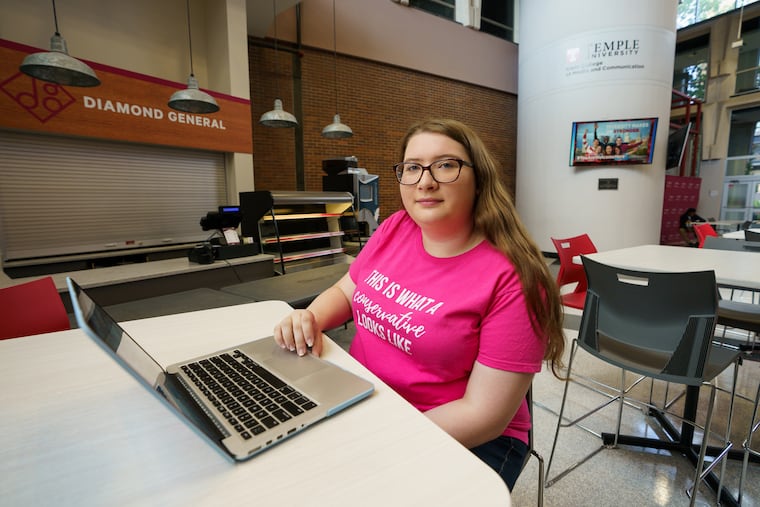If feminism is about choice for women, why can’t I choose to be a conservative? | Perspective
If the goal is for women to be equal, why do we need to be treated differently?

I'm not a feminist.
That might horrify some of my peers on campus, but it's the truth. And I'm not alone.
In a recent poll from Refinery29 and CBS News, more than half of young women polled said they do not identify as "feminist." I understand why.
I'm always taken aback by how modern-day feminists treat women who are different than them. The Women's March may have been the largest national gathering of women for the past two years, but it doesn't represent all of us.
As someone who runs a conservative club for women on campus, I've experienced firsthand the hate that feminists unleash on women who don't think the same way they do.
I've been told I've been "brainwashed" into my beliefs by my father or significant other. Women have claimed I'm "anti-women" because I am pro-life. Girls in class have told me that I must hate myself for not being a feminist. Even professors have tried to tell me I don't understand my gender or women's history in the United States. They've said there is a patriarchy that still needs to be fought, and that I'm just blind to it.
Conservative women don't hate other women, and we sure don't think that women should be kept from pursuing education or a place in the workforce.
I believe in women's empowerment, but I also believe in pro-life policies. I don't know if the pay gap is that big of an issue, and I think quotas for women in the workplace defeat the point of feminism all together. If the goal is for women to be equal, why do we need to be treated differently?
Feminism is supposed to be about allowing women to make their own choices and have their voices heard. First-wave feminists lobbied for the right to vote in elections. Decades later, second-wave feminists fought against employment discrimination, unequal pay, legal inequality, and lack of support for working women. It wasn't about shaming women who chose to stay home and raise their kids; it was about having the option to go to work and be treated equally.
But feminism in 2018 seems to be about tearing down the beliefs of women who disagree with you. Feminism should be building up all women, regardless of their political beliefs.
I wish that the feminists of today would take the time to get to know conservative women and understand that we aren't so different after all.
Many conservative women also want successful careers in areas like politics, business, and science. We think women should vote, work hard to gain leadership roles, and speak up about their beliefs. Like many college students, I enjoy being politically active on my campus — my politics are just different than the majority of other students on my campus.
If the modern feminist movement wants to succeed in empowering all women, feminists should value dialogue (even with people with whom they disagree) and intellectual diversity. Not only would feminism be more inclusive, but a conservative prospective could generate new solutions to tackling divides between men and women. Conservative women contribute a different, but valuable, perspective on social issues. We also bring drive and leadership skills that could inspire others.
Before modern feminists discount conservative women, they should realize that we are more than just stereotypes. Just like them.
Kimberly Burton is a rising junior at Temple University, where she majors in journalism and political science. She is president of Network of Enlightened Women at Temple.